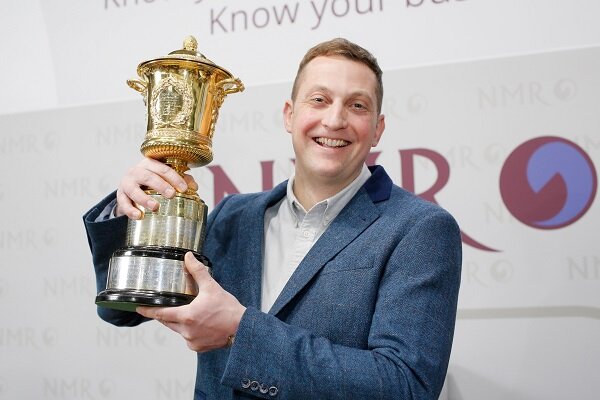
Investing in automation and taking steps prior to Covid-19 to make his business more resilient has been key to surviving, according to an award-winning dairy producer.
Robert Sloan, who farms at Darnlaw Farm, Auchinleck, Ayrshire, said the virus came close to his door when his sister, who lives on the neighbouring youngstock farm, contracted it.
Speaking on the podcast the Milk Digest, Mr Sloan said: “The first three weeks of lockdown were challenging ones as we sent the staff home leaving just me and my Dad.
"If the automation were not there, we would have had to find cover and we would not have been comfortable with that.
“This is the first time we have run the system under so much pressure, and it reminds yourself why you are running that system,” the NMR/RABDF Gold Cup winner said.
In 2011, to increase productivity and to manage labour, the Sloans' built a new dairy on a greenfield site and fitted it with three Lely robots.
They downsized the Holstein herd from 220 to one 180-cows keeping only the best genetics, with the cows milked three-times a day. They also invested in automated calf feeders.
Yield and cow longevity reflect the success of the system. Mr Sloan said: “In 2018 we had eight 100-tonne cows, a herd replacement rate of 19% and an average lifetime yield of 46,000kg.
"Despite dropping cow numbers, we are still producing the same volume of milk.
“People are always looking to expand, but the best thing that could have happened to our business is milking less cows,” he added.
Mr Sloan explained that when the A+B milk price contract came in that helped him focus on reducing cow numbers.
“It made us focus on producing milk from efficient cows. With having robots, you need to have a strong focus on lameness and the robots have freed up time to focus on these areas,” he said.
A diversification in 2016, also added strength to the business when they introduced a 60-cow Jersey herd, which they decided to milk through the old parlour twice a day.
Milk from this herd fulfills a specialist contract with their milk buyer Graham’s Dairy.
“We get paid up to a certain volume with the Jersey contract and if you go over that volume you get paid on a black and white price.
"This production cap allows Grahams to sustain the milk price throughout which means we can plan for things as cashflow can be affected if there are too many fluctuations,” he said.
Since establishing the Jersey herd, they have also begun using sexed semen across both herds.
“The worst thing you can have is a Jersey bull calf which is why we went down the route of sexed semen. Over the last couple of years, we have grown youngstock numbers and have been spending more time managing them.
“Our youngstock sales (surplus heifers and beef) are worth about 6.7p/l. In good years, the youngstock sales allow us to invest in our business, and in the bad years when milk prices are not good, they allow the business to stand still.”
The Sloans have started finishing their cattle and now finish them on a forage-based diet using some of the best silage. Cattle are sold direct to the processor.
“We used to sell stores, but the Jerseys were a bit small, so we decided to do things differently. Although they finish smaller than black and white calves and are killing out lower, they are killing out a grade or two higher,” he added.
